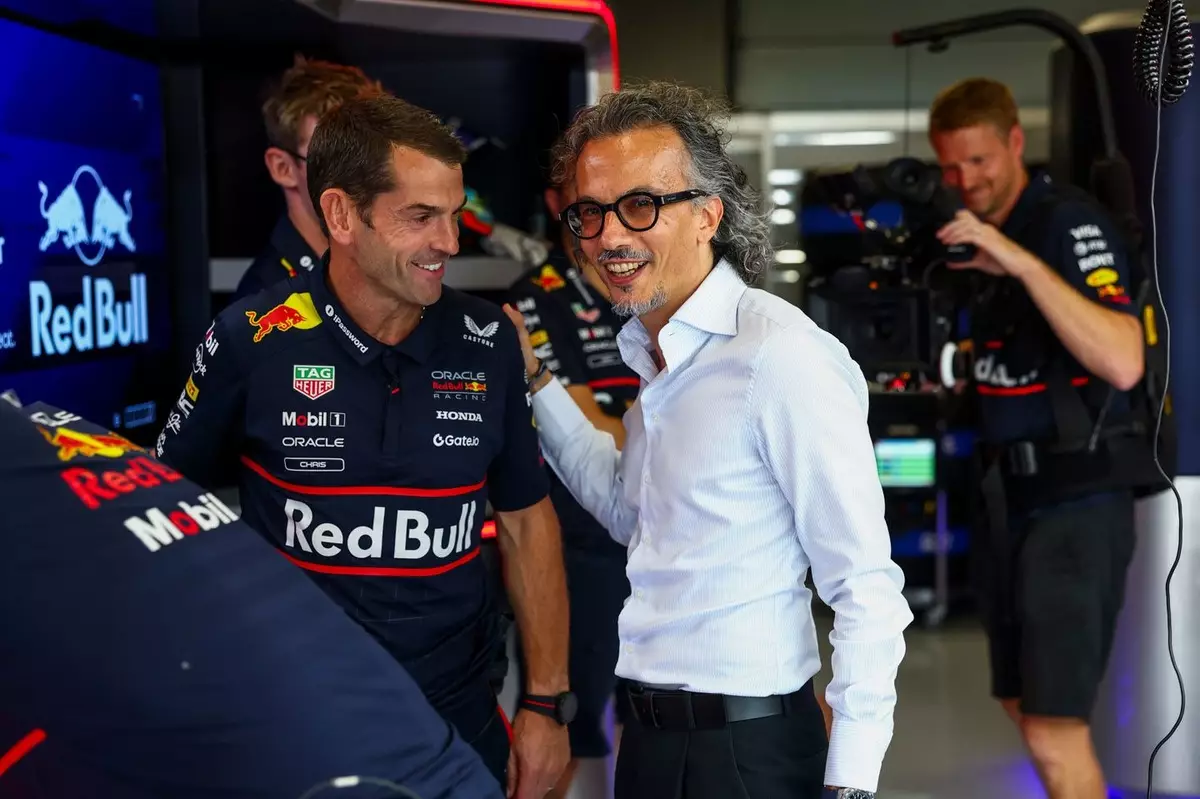The recent appointment of Laurent Mekies as the new team principal and CEO of Red Bull Racing marks a pivotal point for the energy drink giant’s Formula 1 ambitions. This strategic move reflects a conscious effort to infuse fresh leadership with a track record of technical expertise and leadership acumen. Red Bull, a team that has risen from the ashes of an underperforming Jaguar outfit to become a dominant force, recognizes the importance of steady evolution amid fluctuating competitive landscapes. Mekies’ appointment underscores a desire not just to maintain the current momentum but to propel the team into a new era of innovation and resilience.
What genuinely stands out is Red Bull’s willingness to entrust such a complex role to someone with a rich background in both racing and team management. Mekies, with his multifaceted experience, embodies the qualities necessary to navigate Formula 1’s intricate organizational fabric—balancing technical excellence with effective people management. This signals that Red Bull’s leadership sees their future success rooted in strategic stability and robust talent deployment rather than mere technical tweaks.
Intertwined Legacies and the Challenge of Transition
The looming task of filling Christian Horner’s large shoes is no small feat. Horner’s two-decade reign crafted an impressive legacy—transforming a team from relative obscurity into an F1 juggernaut, renowned for racing brilliance and strategic mastery. His leadership saw Red Bull dominate during the Vettel and Verstappen eras, making the team a household name. Now, Mekies inherits not just a title but a formidable legacy steeped in success. The question looms: can he match or surpass this legacy?
Alan Permane’s confidence in Mekies stems from his understanding of the man’s intrinsic qualities—his interpersonal skills, racing sensibility, and technical know-how. Permane’s assertion that Mekies is “right up there” amidst the best team principals indicates a belief that the Frenchman’s skill set aligns perfectly with Red Bull’s ambitions. His ability to blend human leadership with technical insight suggests Red Bull is seeking a leader capable of fostering a harmonious team ecosystem. As Formula 1’s competitive landscape becomes increasingly complex, leaders who maintain team cohesion and adapt to evolving regulations will have the upper hand.
Synergy and Strategic Continuity: The Real Winning Formula
One of the most compelling aspects of this leadership transition is the emphasis on synergy between Racing Bulls and Red Bull Racing. Permane highlights the collaborative history between Laurent Mekies and Christian Horner, emphasizing that their previous collaborations fostered a productive environment. This synergy, built on mutual respect and shared sporting goals, is anticipated to persist, ensuring continuity amid change. The move towards in-house powertrain development and increased integration between Faenza and Milton Keynes exemplifies Red Bull’s strategic vision for full-spectrum control over their performance capabilities.
By leveraging the technical expertise from Racing Bulls—particularly in areas like aerodynamics, chassis development, and powertrain integration—Red Bull aims to sustain its competitive edge. The plan to transition to Red Bull’s own engines by 2026 is ambitious but feasible, given the solid foundation laid by this cross-fertilization of ideas and teams. Permane’s comment that collaboration will continue without issue underscores Red Bull’s pragmatic approach to leadership change—viewing it as an opportunity for growth rather than a disruptive upheaval.
Reflections on Leadership and the Future of Red Bull Racing
Ultimately, the central insight from this reshaping of Red Bull’s leadership is a profound belief in strategic continuity and adaptive innovation. Mekies’ proven track record suggests that Red Bull is not merely chasing short-term success but aiming for sustainable excellence. The team’s willingness to invest in a new leader—someone who has demonstrated the ability to manage complex operations, work effectively with diverse teams, and adapt to the rapid pace of F1 developments—speaks volumes about their forward-looking mindset.
In a sport where technological prowess and strategic finesse often determine the champion, Red Bull seems poised to leverage its internal strengths while embracing fresh perspectives. The leadership decision filters through a broader message: that resilience, adaptability, and a clear vision are the true engines of long-term success. As Formula 1 continues to evolve into a more technologically demanding and fiercely competitive arena, Red Bull’s strategic choices suggest they are preparing to lead not just in the short term but for many seasons to come.

